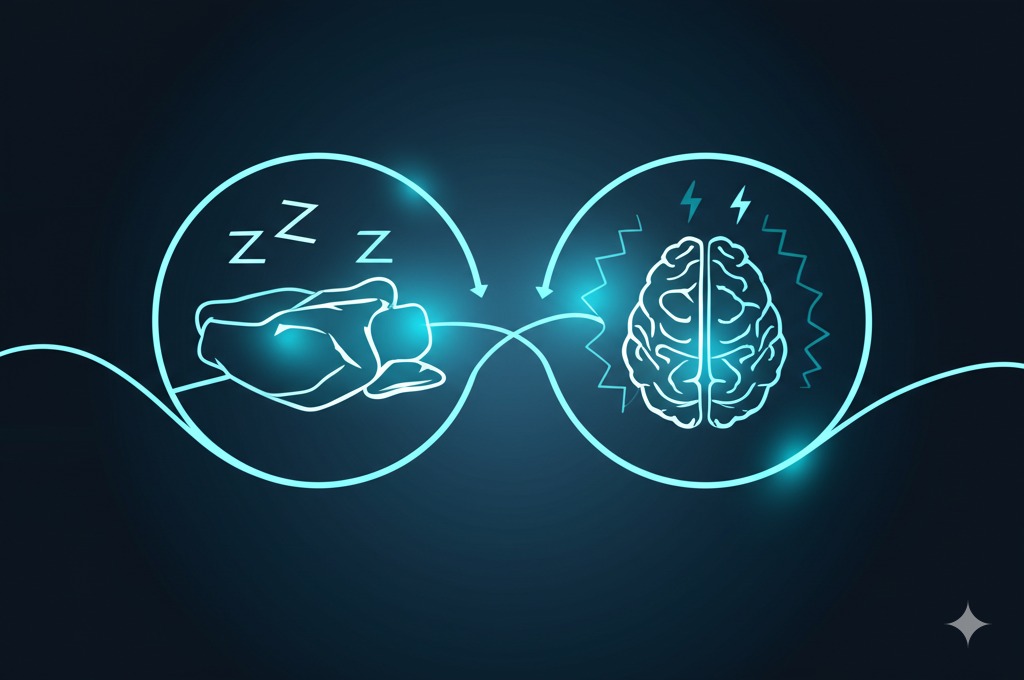When thinking about weight management, diet and exercise usually come to mind first. But there's a third, often overlooked pillar: sleep. Growing evidence reveals a strong and complex connection between how much (and how well) you sleep and your body weight. Skimping on sleep can subtly sabotage even the best diet and exercise plans.
Hormonal Havoc: How Sleep Loss Affects Appetite
Sleep deprivation throws key appetite-regulating hormones out of balance. This hormonal shift directly influences your hunger levels and food cravings:
The Hunger Hormones:
- Ghrelin (The "Go" Hormone): Stimulates appetite. Sleep loss increases ghrelin levels, making you feel hungrier.
- Leptin (The "Stop" Hormone): Signals fullness or satiety. Sleep loss decreases leptin levels, making it harder to feel full.
This double whammy means that when you're sleep-deprived, you're not only biologically driven to eat more, but you also don't get the proper signals telling you when to stop. Studies show people consume significantly more calories, particularly from high-fat and high-carbohydrate foods, after just one night of poor sleep.
Metabolism and Insulin Sensitivity
Beyond appetite, lack of sleep directly impacts how your body processes the food you eat. Chronic sleep restriction can impair glucose metabolism and reduce insulin sensitivity.
Metabolic Consequences:
- Reduced Insulin Sensitivity: Your cells don't respond as well to insulin, requiring your body to produce more to keep blood sugar stable. This is a precursor to type 2 diabetes.
- Increased Cortisol: Sleep loss raises levels of the stress hormone cortisol, which can promote fat storage, particularly around the abdomen.
- Altered Fat Metabolism: Sleep deprivation may shift how your body utilizes and stores fat.
Essentially, poor sleep makes your body less efficient at handling calories and more prone to storing fat, increasing the risk of weight gain and metabolic syndrome over time.
The Tired Brain: Decision-Making and Food Choices
A sleep-deprived brain doesn't make the best decisions, especially when it comes to food. The parts of your brain responsible for complex decision-making and impulse control (like the prefrontal cortex) are impaired by lack of sleep. Simultaneously, the brain's reward centers become more active in response to tempting foods.
Impact on Choices:
- Increased Cravings: Greater desire for high-calorie, sugary, and fatty "comfort" foods.
- Reduced Impulse Control: Harder to resist unhealthy options or stick to planned portion sizes.
- Altered Perception: Unhealthy foods seem more appealing when tired.
This means you're more likely to reach for donuts instead of oatmeal after a short night, even if you know better.
Sleep, Energy, and Physical Activity
The connection also works through energy levels. When you're sleep-deprived, you naturally have less energy.
Effects on Activity:
- Reduced Motivation for Exercise: It's harder to get moving when you're tired.
- Lower Non-Exercise Activity Thermogenesis (NEAT): You might fidget less, stand less, and generally move less throughout the day, burning fewer calories.
- Decreased Workout Performance: You may not be able to exercise as intensely or for as long when sleep-deprived.
Less physical activity means fewer calories burned, tipping the energy balance further towards weight gain.
Prioritizing Sleep for Weight Management
Making sleep a priority is a crucial, yet often underestimated, component of successful weight management. Here’s how to leverage sleep:
- Aim for Consistency: Go to bed and wake up around the same time daily, even on weekends, to regulate your body clock.
- Get Sufficient Duration: Most adults need 7-9 hours of quality sleep per night. Find your sweet spot.
- Optimize Sleep Quality: Create a dark, quiet, cool bedroom environment. Develop a relaxing pre-sleep routine.
- Mind Evening Habits: Avoid large meals, caffeine, alcohol, and excessive screen time close to bedtime.
- Consider Timing: If poor sleep affects your food choices, plan healthy meals and snacks in advance.
- Listen to Your Body: If you're tired, allow for rest, but try to maintain some light activity rather than none at all.
Sleep is Not a Magic Bullet, But...
While getting enough sleep won't magically cause weight loss without attention to diet and exercise, it creates the optimal physiological and psychological environment for those efforts to succeed. Prioritizing sleep helps regulate appetite hormones, improves metabolism, supports better food choices, and provides the energy needed for physical activity.
Don't underestimate the power of sleep in your weight management journey. By making consistent, quality sleep a non-negotiable part of your healthy lifestyle, you support your body's natural weight-regulating mechanisms and significantly increase your chances of achieving and maintaining your goals.




